Religion: Jewish Law
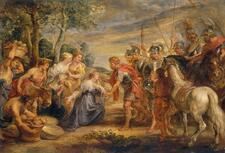
Abigail: Midrash and Aggadah
Abortion: Halakhic Perspectives
While halakhic discussions about abortion largely excluded the arguments and perspectives of women, in general poskim (decisors) determined that a woman’s life takes priority over the life of the fetus. Halakhic perspectives have explored the point at which the fetus is considered a human and taken the mother’s physical and psychological health into account in determining her right to abort.
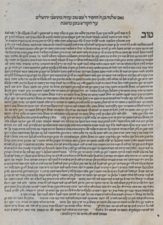
Benvenida Abravanel
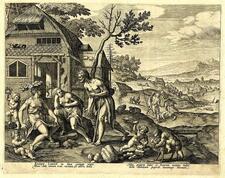
Adah 1: Midrash and Aggadah
Adah was one of Lamech’s wives whose legacy was observable not only in her own children but also in her influence on her fellow Israelites.
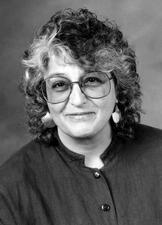
Rachel Adler
Rachel Adler is unquestionably among the leading constructive Jewish theologians, translators, and liturgists of the modern era. One of the first theologians and ethicists to integrate feminist perspectives and concerns into the interpretation of Jewish texts and the renewal of Jewish law and ethics, Adler is the award-winning author of Engendering Judaism.
Agunot
Agunot are women who are unable to obtain a rabbinic divorce because their husbands or husbands’ male next of kin are unable to give one, leaving them chained in marital captivity. Although many efforts have been made to address these problems, for those most part agunot in halakhically observant communities continue to face deep-seated challenges.
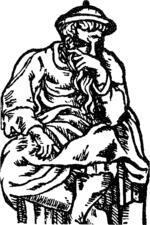
Akiva, Rabbi
Rabbi Akiva was an important interpreter and teacher of Jewish laws of the Tannaitic period (ca. first-third century C.E.). He was particularly groundbreaking in his teachings regarding women’s standing and sexual and marital relations, recognizing women as deserving of human dignity.
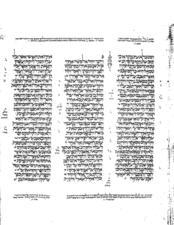
Ba'alei Ha-Nefesh
Ba’alei Ha-Nefesh is a halakhic work written by Rabbi Abraham ben David (Rabad) of Posquieres, a Provençal rabbi, in 1180. It focuses on the laws of behavior during niddah (menstruation), and lays out Rabad’s theology of self-control, sexuality, and the role of Jewish women.
Baraita de-Niddah
A rabbinic text about the ritual laws relating to menstruation, Baraita de-Niddah has a mysterious origin and an unknown impact on the interpretation of Jewish law about menstruation.
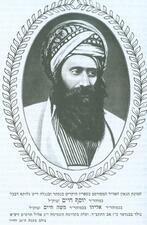
Ben Ish Hai
The Ben Ish-Hai, R. Joseph Hayyim b. Elijah, was a well-known Baghdadi Torah scholar. He wrote many responsa and halakhic books, which included his rulings on women’s halakhot.
Rayna Batya Berlin
Rayna Batya Berlin was a Lithuanian woman committed to religious study who argued that women should be able to study the Torah and the Talmud. The only source of her life was written by her nephew, who describes her frustration with her subjugated status in her community and how she generally suffered in silence.

Beruryah
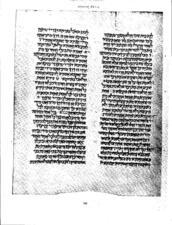
Bet Hillel and Bet Shammai
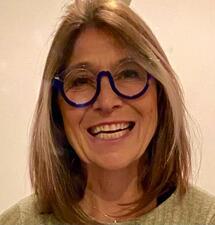
Analía Bortz
Analía Bortz is the first Latin American woman ordained as a Conservative rabbi. Her approach to spirituality and religion combines with her medical training. As a doctor specializing in bioethics, she has also helped women and couples with fertility issues.
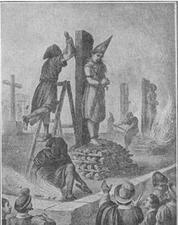
Women of the Carvajal Family
The devotion of the Carvajal women to forbidden Jewish practices helped their family become the most famous Hispano-Portuguese secret Jews of colonial Latin America. The determination of these conversas, or New Christians, to create a recognizable Jewish identity shows the importance of women to crypto-Judaism at a time when the Inquisition of Spain and its territories prosecuted this belief system as heresy.
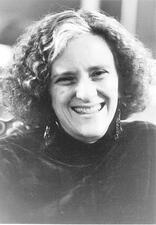
Conservative Judaism in the United States
Women have played a pivotal role in propelling the Conservative Movement to confront essential issues including Jewish education and gender equality. The Movement’s attention to issues such as the religious education of Jewish girls, the status of the agunah (deserted wife), equal participation of women in ritual, the ordination of women, and innovations in liturgy and ritual to speak to women’s experiences has helped to shape the self-definition of Conservative Judaism, and has enabled talented Jewish women to reach new heights in religious leadership.
Contraception
One of the major Jewish sources dealing with contraception is Tosefta Niddah. As with the issue of abortion, the more public the debate about contraception became over time, the more some rabbinic authorities attempted to usurp women’s control over their bodies.
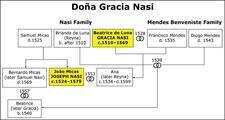
Conversas
After the establishment of the Inquisition in 1478, observance of crypto-Judaism became dangerous and more difficult. Women were at the center of Judaizing efforts, since the home was the only remaining institution in which one could observe Jewish law. Crypto-Jewish women most frequently observed the Sabbath and dietary laws.
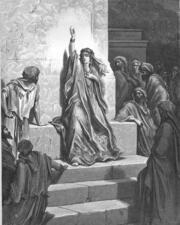
Deborah 2: Midrash and Aggadah
Deborah, one of the most extraordinary women in the Bible, is presented as an extremely righteous and praiseworthy woman in rabbinic literature. Though some traditions criticize her pride, perhaps wary of how she transgressed gender norms, most of the rabbinic texts about Deborah are filled with praise.
Divorce: The Halakhic Perspective
Equality, Religion and Gender in Israel
Although the principles of equality for women under the Declaration of Independence and the Women’s Equal Rights Law were not endowed with constitutional force, and the 1992 Basic Law: Human Dignity and Liberty does not expressly include the principle of equality, these laws have been interpreted by the courts as securing the principle of gender equality as a basic principle of the legal system.

Esther: Midrash and Aggadah
Queen Esther, the central character in the Biblical book named after her, is extensively and sympathetically portrayed in the Rabbinic sources. In their commentary on the Book of Esther, the Rabbis expand upon and add details to the Biblical narrative, relating to her lineage and history and to her relations with the other characters: Ahasuerus, Mordecai, and Haman.
Rabbi Moses Feinstein
Rabbi Moshe Feinstein, one of the great Jewish legalists of the twentieth century, wrote numerous legal decisions responding to and affecting women’s lives. His pronouncements regarding women aimed to respond to women’s issues with respect and careful consideration, while also establishing a system in which the roles of men and women were distinctly imbalanced.
Female Martyrdom
In various eras, Jewish women chose martrydom, or Kiddush ha-Shem (sanctification of the Divine Name), rather than repudiate God or transgress certain commandments. Examples appear in Jewish Hellenistic writings, rabbinic literature, Crusade chronicles, medieval Hebrew piyyut (liturgical poetry), accounts of the seventeenth-century Chmielnicki pogroms, and documents connected with the Shoah. Scholars differ, however, regarding the accuracy of these martyrological texts, which often reshape actual events to conform to iconic imagery.
Female Purity (Niddah)
Halakhic practice for Niddah, or female purity, is based on a harmonistic reading of Leviticus 12,15, 18, and 20. The laws of female purity have been historically used to determine the status of women in a patriarchal society.


